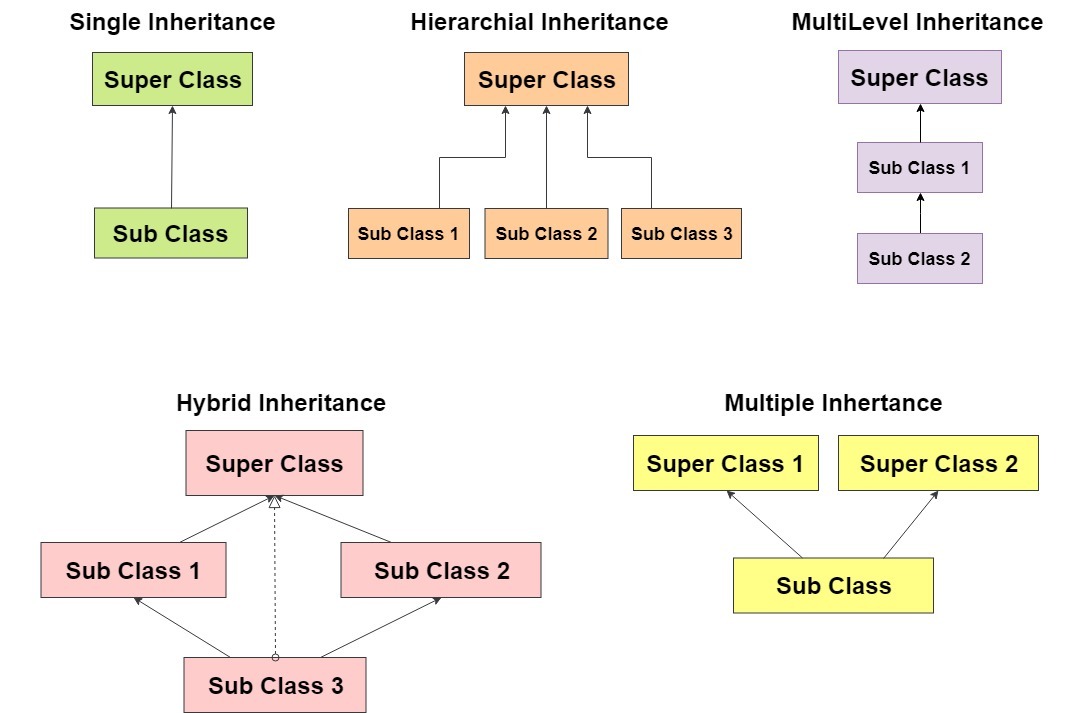Inheritance in Java
In this tutorial, we will learn about inheritance in Java with the help of examples
Inheritance in Java is a mechanism in which one object acquires all the properties and behaviors of a parent object. It is an important part of OOPs (Object Oriented programming system).
The idea behind inheritance in Java is that you can create new classes that are built upon existing classes. When you inherit from an existing class, you can reuse methods and fields of the parent class. Moreover, you can add new methods and fields in your current class also.
Inheritance represents the IS-A relationship which is also known as a parent-child relationship.
is-a relationship
Inheritance is an is-a relationship. We use inheritance only if an is-a relationship is present between the two classes.
Here are some examples:
- A surgeon is a doctor.
- A dog is an animal
- Orange is a fruit.
Example:
class Animal {
}
class Mammal extends Animal {
}
class Reptile extends Animal {
}
public class Dog extends Mammal {
public static void main(String args[]) {
Animal a = new Animal();
Mammal m = new Mammal();
Dog d = new Dog();
System.out.println(m instanceof Animal);
System.out.println(d instanceof Mammal);
System.out.println(d instanceof Animal);
}
}
This will produce the following result −
output:
true
true
true
Java Method overriding
If subclass (child class) has the same method as declared in the parent class, it is known as method overriding in Java.
In other words, If a subclass provides the specific implementation of the method that has been declared by one of its parent class, it is known as method overriding.
Here are some examples:
Example:
class Animal {
protected String type = "animal";
public void eat() {
System.out.println("I can eat");
}
public void sleep() {
System.out.println("I can sleep");
}
}
class Dog extends Animal {
@Override
public void eat() {
System.out.println("I eat dog food");
}
public void bark() {
System.out.println("I can bark");
}
}
class Main {
public static void main(String[] args) {
Dog dog1 = new Dog();
dog1.eat();
dog1.sleep();
dog1.bark();
}
}
output:
I eat dog food
I can sleep
I can bark
In the above program, we have used the @Overrideannotation to tell the compiler that we are overriding a method. However, it's not mandatory.
Types of inheritance
There are five types of inheritance.
- Single inheritance - Class B extends from class A only.
- Multilevel inheritance - Class Bextends from class A; then class c extends from class B
- Hierarchical inheritance - Class A acts as the superclass for classes B, C, and D.
- Multiple inheritance - Class C extends from interfaces A and B.
- Hybrid inheritance - Mix of two or more types of inheritance
 type of inheritance
type of inheritance

